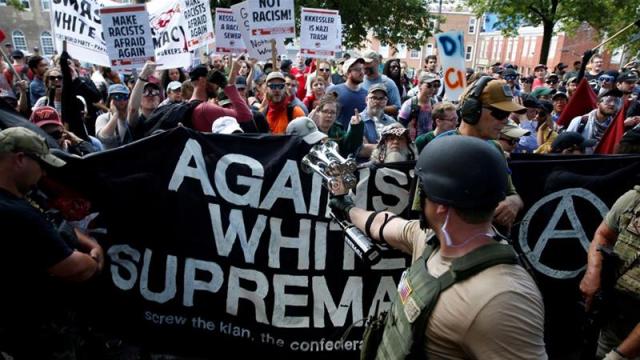Reported instances of religious hate crimes have risen by 40 percent in comparison to last year's figures, state police in England and Wales. The majority of such offences, totalling 52%, were perpetrated against Muslims. This surge in crimes motivated by links to religious belief has further fuelled fears that the UK has become a more divided country since events such as the Brexit referendum and recent terror attacks.
More victims are coming forward
There is ongoing analysis surrounding these newly released figures, with some experts claiming that the rise is partly due to a greater willingness in victims to report these offences to the police.
Commentators have long vocalised their fears that spikes in hate crimes, particularly those driven by Islamophobia, could result from far-right wing voices becoming emboldened by the current political climate.
Out of every incidence of reported hate crimes, 76% have been classified as related to 'race hate.' The number of reports regarding such offences reached the record level of 94,098 in the period from April 2017 to March of this year. This signals that instances of hate crimes have more than doubled since the levels recorded in 2012/13 before events like the Brexit referendum had taken place.
Law Commission set to debate redefinition of hate crimes
Recently it was announced that the Law Commission would engage in a review to decide whether occurrences of hostility driven by misogyny or misandry should be included under the umbrella term of hate crimes.
Occurrences of misogynistic harassment or aggression, which would be defined as motivated by a hatred for or prejudice against women, as well as instances of misandry could soon be included in hate crime statistics. This would lead to stronger sentences being handed to those found guilty of either of these offences in a court of law.
The possibility of future reviews into whether ageism and hostility towards social subcultures, including goths and punks, should be regarded as criminal offences has also been raised by the Law Commission.
Such, new inclusions would evidently lead to another upsurge in the figures depicting rates of hate crime occurrences, thereby revealing the full scale of prejudice and contempt circulating in society in both England and Wales.
The Home Office is keen to be seen as taking decisive action against offences linked to prejudice against any variety of social group, explaining why the definition of hate crimes is under such intense review by the Law Commission.



